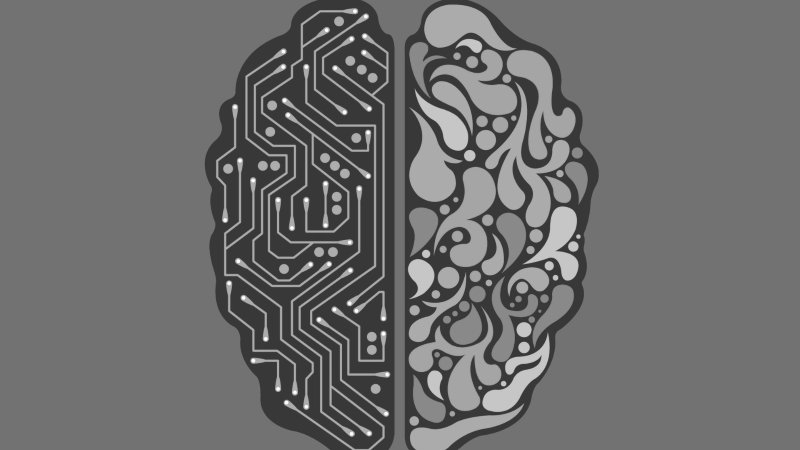It’s been hard to escape the feeling recently that robots are coming. Not as an army of efficient terminators controlled by a super-sentient hive mind, perhaps. But certainly as an army of bots, capable of producing works of art in less than a minute. With creative writing, there’s ChaptGPT from Open AI, alongside Google’s soon-to-be-released Bard (and many more). As a writer, you only have to use such apps for a short time to fear they could soon spell the end of employment for anyone trying to create ‘artistically’. Now, writing for a living has always been challenging, so it’s easy to see why writers aren’t too pleased with this unwanted innovation. But I’m going to explain why there’s no need to worry about AI fiction. At least not yet.
How AI writing works
For the past couple of years, copywriters have posted anxious threads. Be it on Twitter and LinkedIn or Reddit. The gist has centred on fears that AI could soon put them out of work. I know because I was one of them. First, there was GPT-2 and then GPT-3. Now, I gather GPT-4 is on the way. These Large Language Models (or LLMs for short) process vast volumes of text data and assign meaning models to what they find. What this means for you as a user is that if you get skilled at writing command prompts, the AI delivers content that’s 100% original. And, for the most part, grammatically on-point.
How could this be used? Let’s say you’re a salesman rummaging through your CRM database. Writing has never been your strong point. Instead of writing a mail yourself, you could ask Chat-GPT to pen a cold email to a potential client. Or perhaps you’re a busy entrepreneur. Chat-GPT could produce various sales headlines for your new product, so long as content exists about your product on the web. You’re then free to develop the headlines you like.

But for AI fiction, you can also instruct the AI to write a story on any subject you want. About a ouija board, for example. Then ask it to write in a particular writer’s style like Charles Dickens or Sylvia Plath. From my experience, it struggles with such tasks, especially characters and speech. That said, it does an impressive job of blocking out a narrative.
Able to produce such content at the drop of a hat, it’s easy to see why the application is causing such excitement. And especially with marketing managers and newsdesks under pressure to pump out content in record time.
AI fiction and the future
Does this mean that websites will soon fill with AI-generated content? We’re already seeing CNET Money explore this approach. Over 75 of their CNET Money articles are AI-assisted, with a human editor checking everything before they hit publish. CNET claim the approach is helping them get all angles of a story covered. Then a human writer can delve deeper on any particular angle. We’ll see.
But what about AI fiction and books? How long before there’s an AI-generated novel? AI-generated short stories already exist. How will the surge in this content change the landscape for writers?
Like most writers, my reaction to all this talk has been fear and trepidation. After all, no one wants to lose their livelihood to a machine. But is all this foreboding justified? With the benefit of hindsight, humans panic whenever we see machines stepping on our turf. It may be in our nature. But let’s flip it around a minute.
Machines are used and trusted in many other industries. And yet humans still widely operate in such areas all the time.
Machines at work around us
After all, the digger’s arrival didn’t put construction workers out of work. Instead, they moved on to more complex roles like pointing, tiling, or scaffolding. Also, it meant their employers could tackle much larger jobs. Often in a much shorter timeframe.
The analogy holds in other industries. Take web development, for example. Now, I’m no great coder, far from it. But I remember coding a website for a traditional artist in the mid-noughties made entirely from CSS and HTML. It took me months to write all the various lines. Then liaise with an FTP server and re-point the DNS. If the artist wanted anything changing, more often than not, it was a real headache.
Then came editors such as Squarespace and WordPress. While not AI, they still came with sophisticated and pre-built themes. And these enabled developers to construct a website within an hour or two. I remember people panicking and fearing this innovation would put web designers and developers out of business.
But this hasn’t happened at all. Instead, it’s enabled the good ones to serve more customers and build more complex websites and applications. Platforms like Squarespace and WordPress have accelerated web development and made it more accessible for people and businesses.
Trust me. No web developer worth his salt wants to go back to the old days when websites had to be hand-stitched together a site by hand. It may be a right of passage for their development, but developers are free to drop into the code when needed. High-level concept creation takes up most of their time. And they can do much more in a shorter space of time. As a result, their role is more varied and less laborious.
Nor can I imagine any product designer wanting to live without computer-assisted design. CAD allows them to produce complex product designs in less than half the time. And those doctors taking advantage of AI diagnostic tools know it helps them do their vital job much faster, to a greater degree of accuracy.
So, bearing all this in mind, it’s possible to look at AI writing tools, and AI fiction, more positively. Which is helpful, at least for me, because, let’s face it. AI isn’t going away anytime soon.
The unique human value

I could write the most well-researched piece of prose that is grammatically correct. But, unless this writing resonates with the human reading it, it won’t connect. Pure and simple. Writing has to tap into the human experience in a unique and novel way.
So, AI fiction may be able to create a piece of text that tells a story, but will it confound expectations? Creative writing is only effective and enriching when it resonates with the reader. Such magic only occurs when the writing reflects a human experience in a unique and novel way.
And let’s think about characters for a minute. Most experts agree that it’s the creation of believable and organic characters that help great stories stand out. Who better to write about these human characters than a human themselves? Only a human can write in a way that amuses or unnerves, haunting the reader for days after they finish.
I’m sure AI fiction will get to this stage eventually. However, such tools by this point will be so sophisticated they will doubtless pass for the real thing: a human mind. Regulations will likely control AI to specific functions. Or, at least, they will do if anyone has any sense.
In the meantime, ask yourself. Who would want to buy and read writing created by artificial intelligence? Until we suspect AI of being able to interpret the world in the way we can? So that includes emotions and depth and cognitive dissonance, and everything else. If that kind of AI is available, there would be no point. Fiction tells the truth from a human perspective. Then codifies that truth into an entertaining story that we use to help us escape.
I can’t imagine ever wanting to know what an AI imagines about the world around me because it’s artificial and not like me. I might once, as a curiosity, but I wouldn’t read too many more. Humans buy from humans. Humans connect with art that reflects the human condition. Or, art made by other humans.
Of course, this simple fact doesn’t mean people won’t try and exploit AI wherever they can. Where cookie-cutter content won’t harm SEO and brand perception, AI content will replace human input. So, regarding product descriptions on a website, you can already see how AI could help save time and effort. All that’s left is for a copywriter to amend here and there. As a copywriter myself, a part of me thinks ‘Good.’ I don’t want to have to write repetitive, mind-numbing sales descriptions of plumbing valves. Or light switches or anything else you can imagine. Any more than a web developer wants to hand-stitch the lines of code needed for a website redesign.
So, chill out…
Human authenticity will be a key selling point in books, fiction, content, art, and corporate brand messaging. In fact, it already is. For example, Google uses human experience and insight as one of the principle values to rank its search pages. So human-generated content already has a high value. Could it be that now, people are finally willing to pay for it?
Let’s not get carried away. However, until the boffins create Megamind or Skylab, human writers have an exciting future. We’ve just got to embrace the technology like doctors, CAD designers, and web developers before us. Let’s make Chat GPT and Bard our writing assistants to help us handle the rough drafts and story outlines. Or come up with various alternatives to the plot line we’re building. Then develop the best, and use our human insights and skills to deliver better stories faster.
Did you enjoy this article? You can read more posts like it on my main blog page. Or do you have something to add? Please let me know in the comments section. It would be great to get your take.
